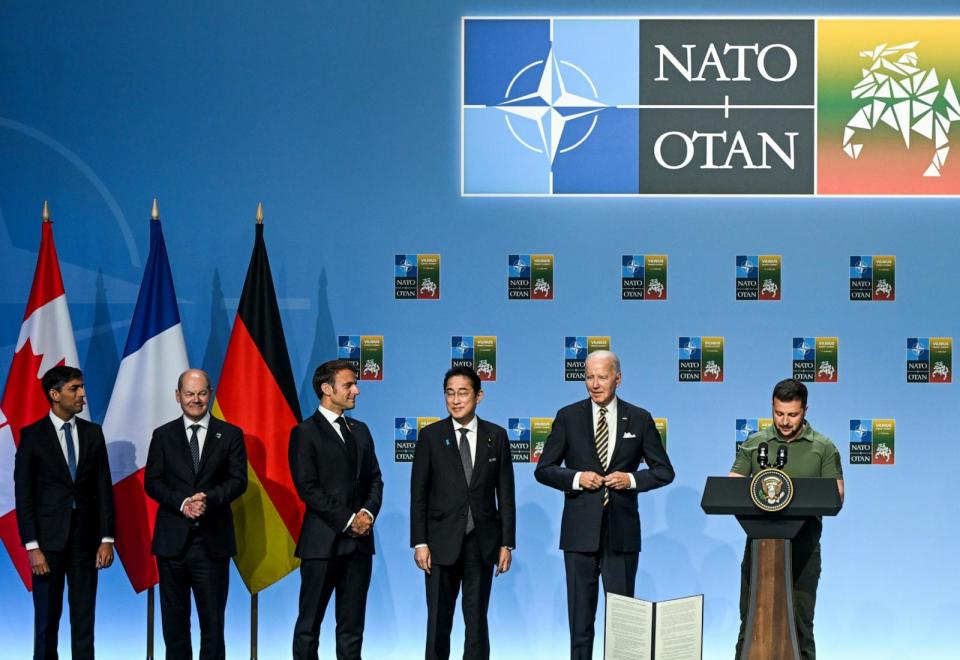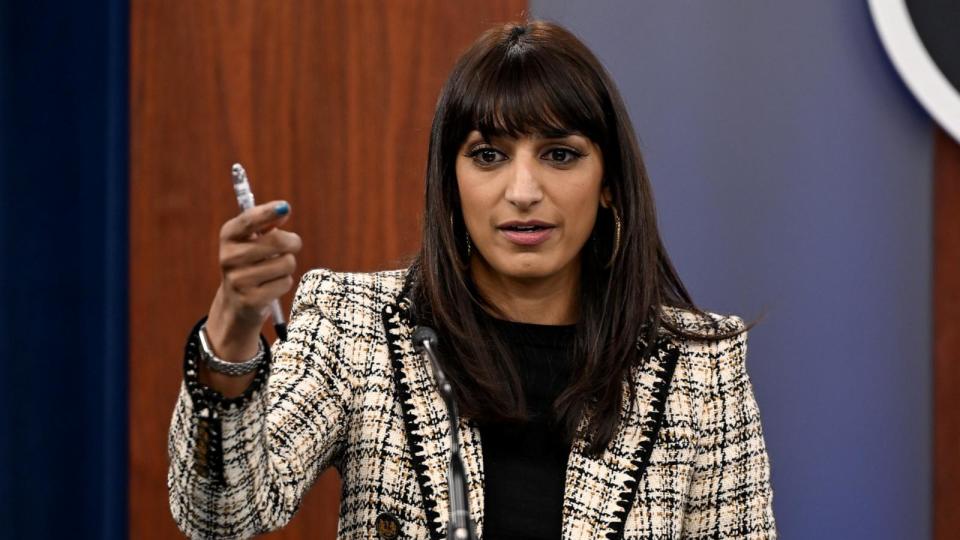Senior DOD official experienced 'Havana syndrome' symptoms at NATO summit in July, Pentagon says
The Pentagon on Monday confirmed a possible new case of "Havana syndrome" involving a senior defense official who attended the NATO summit in Lithuania last year, as the White House says it stands behind an intelligence assessment that a foreign adversary is unlikely to blame for the mysterious health symptoms.
Officials said an investigation into the bizarre health ailments -- symptoms that include unexplained hearing loss, headaches, ear ringing and dizziness -- reported by government personnel stationed abroad for years now is ongoing.
"I can confirm that a senior DOD official experienced symptoms similar to those reported in anomalous health incidents," deputy press secretary Sabrina Singh said.
What's likely behind mysterious 'Havana syndrome' that plagued US diplomats

On Sunday, CBS's "60 Minutes," The Insider and Der Spiegel reported that Russia might be behind the attacks, citing new evidence and interviews with victims, their lawyers and a former government investigator. Dmitry Peskov, Russian President Vladimir Putin's press secretary, told reporters Monday that the allegations of Russia's involvement "are exceptionally groundless accusations by the media," later adding that "no one has ever published or expressed any convincing evidence of these unfounded accusations."
Among the revelations from the joint investigation by "60 Minutes," The Insider and Der Spiegel was that a senior U.S. defense official experienced the strange symptoms after traveling to the 2023 NATO summit in Vilnius, an event also attended by Defense Secretary Lloyd Austin.
Singh said Monday that the person was not part of the delegation traveling with Austin. She could not say, though, whether the two stayed at the same hotel, and referred questions about the investigation to the intelligence community. Singh also declined to identify the senior defense official or provide an update on their medical status, citing privacy concerns.
"I'm not aware that the Secretary [Austin] delegation was at risk," she said.

In a threat assessment released in February, the intelligence community stated a foreign adversary was "unlikely" to have caused the health problems. It noted, however, that U.S. intelligence agencies had varying levels of confidence in that assessment, noting "gaps" in intelligence.
"We continue to closely examine Anomalous Health Incidents (AHIs), particularly in areas we have identified as requiring additional research and analysis," a statement read at the time. "Most IC agencies have concluded that it is very unlikely a foreign adversary is responsible for the reported AHIs. IC agencies have varying confidence levels because we still have gaps given the challenges collecting on foreign adversaries -- as we do on many issues involving them."
The White House on Monday cited those findings. White House press secretary Karine Jean-Pierre told reporters the intelligence community "has not concluded that," regarding what "60 Minutes" reported. She said President Joe Biden is "standing by the assessment" of the Office of the Director of National Intelligence.
"What I can speak to is what we have done since 2023 since the intelligence committee assessment, and we have taken this very seriously," she said.
Mark Zaid, a whistleblower attorney with a security clearance who represents many of the victims, said there's little doubt in his mind that Russia is involved and that the latest reporting should move the needle.
"We finally have direct connective evidence to the Russians, certainly to the extent of forcing the government to give real answers," he told ABC News.
Biden signs law to expand health care for 'Havana syndrome' victims
The government "can't just say 'no, we looked at this and found there's nothing there.' Because that's a lie. It's an absolute lie," he added.
Zaid said that if Russia or another foreign adversary isn't to blame, there should be some kind of explanation. It's possible, he said, the government is avoiding blaming Russia to avoid direct conflict.
"If this is the Russians, using a device, knowingly harming not only our intelligence officers but their families -- it's crossing that line. That's an act of war, and we've done nothing that we know of to respond," he said.
"Havana syndrome" was first reported in late 2016 by State Department personnel stationed in the Cuban capital, but soon, diplomats and other government workers stationed around the world began experiencing similar, unexplained neurological symptoms. Officials in 2023 estimated there were some 1,500 American personnel in 96 countries who reported symptoms.
Symptoms are said to vary in type and severity but often are reported to include the sudden onset of severe headaches, difficulty concentrating, auditory disturbances and memory loss.
ABC's Justin Gomez, Chris Boccia and Cindy Smith contributed to this report.
Senior DOD official experienced 'Havana syndrome' symptoms at NATO summit in July, Pentagon says originally appeared on abcnews.go.com

 Yahoo Sports
Yahoo Sports 
